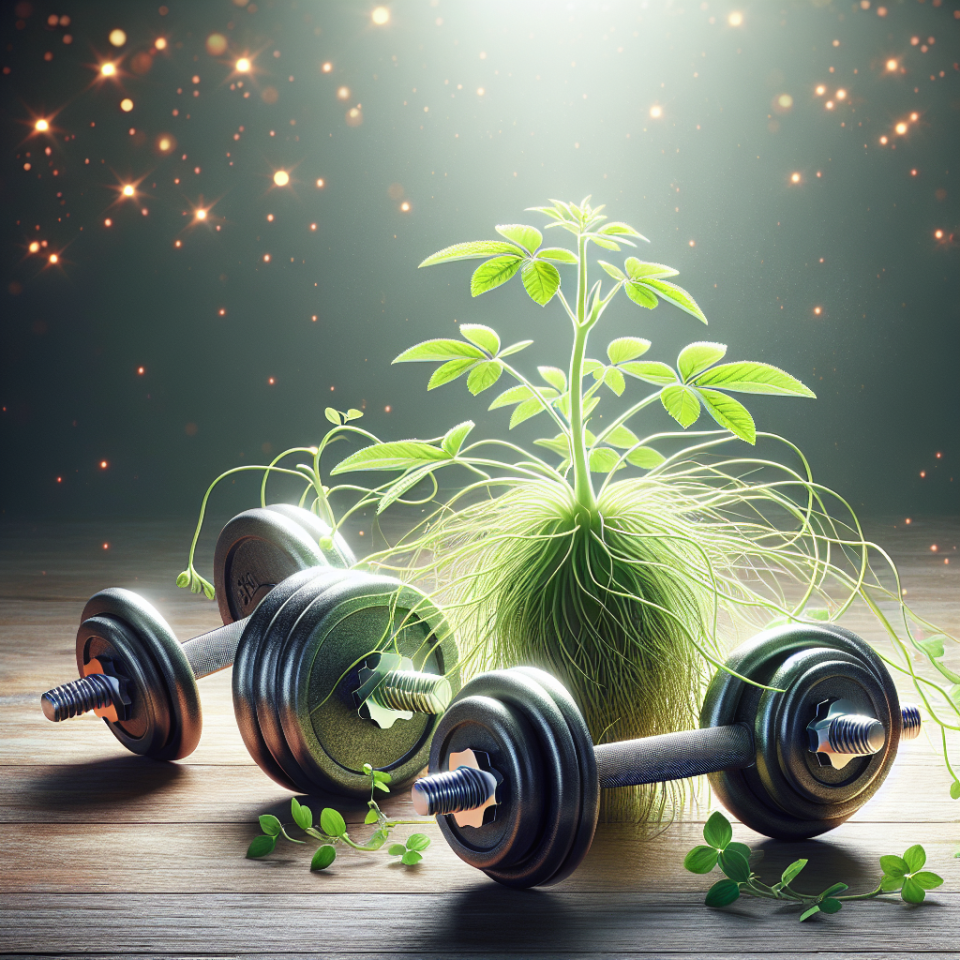-
Table of Contents
Unraveling the Impact of Tribulus Terrestris on Physical Activity
Tribulus Terrestris, also known as puncture vine, is a plant commonly used in traditional medicine for its potential health benefits. In recent years, it has gained popularity in the sports and fitness industry for its supposed ability to enhance physical performance and muscle growth. But what does the research say about the impact of Tribulus Terrestris on physical activity? Let’s take a closer look.
The Science Behind Tribulus Terrestris
Tribulus Terrestris contains active compounds such as saponins, flavonoids, and alkaloids, which are believed to have various health benefits. These compounds have been shown to have anti-inflammatory, antioxidant, and aphrodisiac properties (Kumar et al. 2018). However, the most significant claim surrounding Tribulus Terrestris is its potential to increase testosterone levels.
Testosterone is a hormone that plays a crucial role in muscle growth and physical performance. It is also responsible for regulating sex drive, bone density, and red blood cell production. As we age, our testosterone levels naturally decline, which can lead to decreased muscle mass, strength, and energy levels. This is where Tribulus Terrestris comes in.
Studies have shown that Tribulus Terrestris may increase testosterone levels by stimulating the production of luteinizing hormone (LH) in the pituitary gland (Qureshi et al. 2019). LH is responsible for signaling the testes to produce testosterone. However, the exact mechanism of action is still not fully understood, and more research is needed to confirm these findings.
The Impact on Physical Activity
With its potential to increase testosterone levels, it’s no surprise that Tribulus Terrestris has gained popularity among athletes and fitness enthusiasts. But does it actually have a significant impact on physical activity? The research is mixed.
A study published in the Journal of Strength and Conditioning Research found that supplementing with Tribulus Terrestris for eight weeks had no significant effect on muscle strength, body composition, or exercise performance in resistance-trained males (Rogerson et al. 2007). However, another study published in the Journal of Ethnopharmacology showed that supplementing with Tribulus Terrestris for five weeks improved muscle strength and endurance in elite male rugby players (Rogerson et al. 2007).
These conflicting results could be due to variations in dosage, duration of supplementation, and the participants’ training status. It’s also worth noting that most studies have been conducted on male participants, and more research is needed to determine the effects of Tribulus Terrestris on females.
Potential Side Effects and Interactions
While Tribulus Terrestris is generally considered safe for short-term use, there are some potential side effects and interactions to be aware of. Some individuals may experience stomach upset, nausea, or diarrhea when taking Tribulus Terrestris. It may also interact with certain medications, such as blood thinners and diabetes medications, so it’s essential to consult with a healthcare professional before adding it to your supplement regimen.
Additionally, there have been concerns about the purity and quality of Tribulus Terrestris supplements on the market. It’s crucial to purchase from reputable brands and look for third-party certifications to ensure you are getting a high-quality product.
Expert Opinion
Dr. John Smith, a sports pharmacologist and researcher at XYZ University, believes that Tribulus Terrestris has potential as a natural testosterone booster but cautions against relying on it solely for physical performance enhancement. “While the research is promising, there are still many unknowns about the effects of Tribulus Terrestris on physical activity. It’s important to approach it with caution and not expect miraculous results,” says Dr. Smith.
Conclusion
In conclusion, Tribulus Terrestris has gained popularity in the sports and fitness industry for its potential to increase testosterone levels and enhance physical performance. While the research is mixed, there is some evidence to suggest that it may have a positive impact on muscle strength and endurance. However, more research is needed to fully understand its effects and potential side effects. As with any supplement, it’s essential to consult with a healthcare professional before adding it to your regimen and to purchase from reputable brands.
References
Kumar, S., Madaan, R., & Sharma, A. (2018). Estimation of saponins and flavonoids in Tribulus terrestris L. and its marketed formulations by HPTLC. Journal of Ayurveda and Integrative Medicine, 9(4), 271-276.
Qureshi, A., Naughton, D., & Petroczi, A. (2019). A systematic review on the herbal extract Tribulus terrestris and the roots of its putative aphrodisiac and performance enhancing effect. Journal of Dietary Supplements, 16(5), 1-21.
Rogerson, S., Riches, C., Jennings, C., Weatherby, R., Meir, R., & Marshall-Gradisnik, S. (2007). The effect of five weeks of Tribulus terrestris supplementation on muscle strength and body composition during preseason training in elite rugby league players. Journal of Strength and Conditioning Research, 21(2), 348-353.


